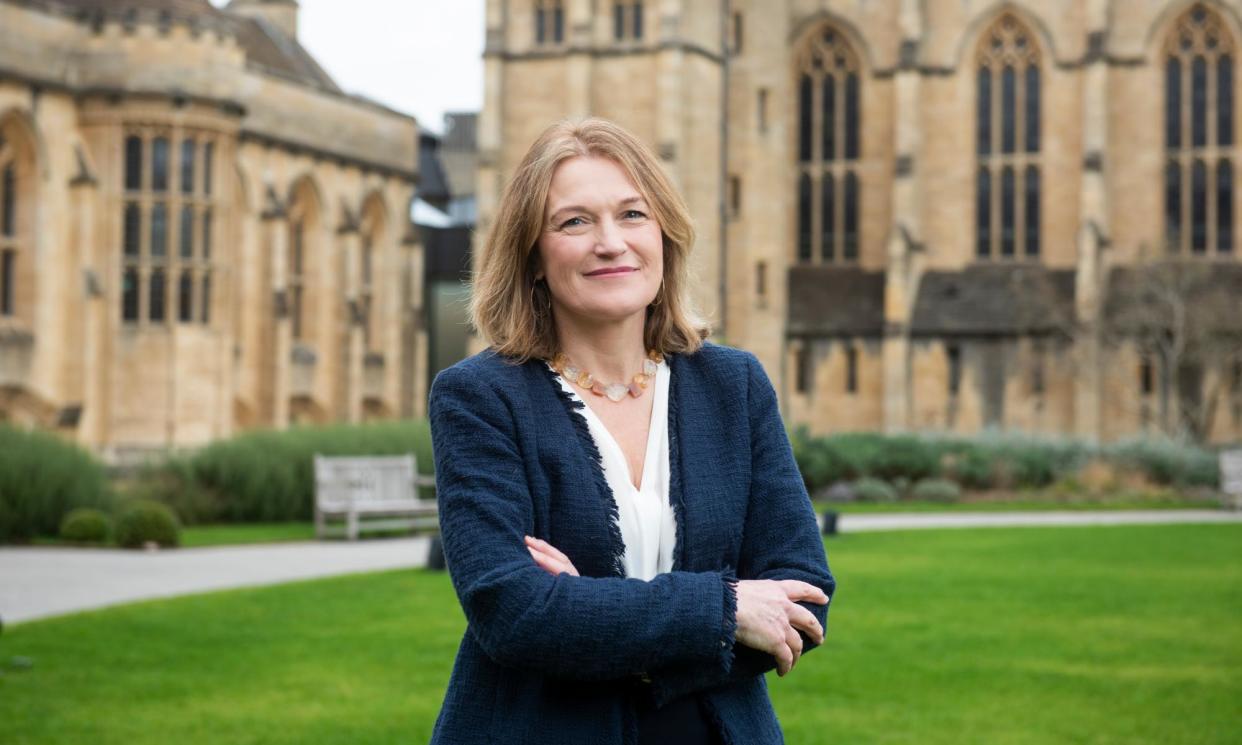Oxbridge must help pupils from state schools succeed, college head says

Oxbridge colleges need to actively help their state school-educated pupils succeed, rather than hope a “magical sorting hat” will uncover their talent, according to the head of an Oxford college who is looking to raise £100m to do just that.
Helen Mountfield, the principal of Mansfield College, Oxford, said her college was able to recruit 93% of its undergraduates from UK state schools and see them flourish because of the extra effort it put in.
She said: “We pride ourselves on taking in people on what we see is their intellectual aptitude. Sometimes they haven’t had the maths coaching they need, or they haven’t had as much individual support in how to structure an essay, for example.
“So if you come here, and you’re doing PPE or engineering, and you say: ‘I’m stuck on the maths,’ we want to be able to say: ‘Don’t stress about that, you’re a clever person.’ We’ll give you coaching in maths and we’ll get you back up to where you need to be.”
Related: ‘I didn’t think I’d get an interview’: students start first Oxford-wide foundation year
“There’s a myth that Oxford works as a magical sorting hat, rewarding the most talented, but it’s not the case. We’re looking for talent from a broad range of backgrounds.
“My assumption is that academic aptitude and interest is broadly spread in society, [but] opportunity to make use of it isn’t. The 93% isn’t a quota. We take people wherever they come from, we look at them on merit, and we try to find the people we think will most make best use of a place here and benefit from it most.
“We’ve really tried hard to find people who we think have that aptitude. We don’t reduce our grades for people to get in, but when we’re looking at GCSE results we look at the context in which they’ve been obtained. We’re looking for future aptitude.”
Mansfield’s recruitment from state schools is far higher than Oxford overall, with just 66% across the university. Mountfield said the wider talent pool has paid off in the college’s improved degree results.
She said: “I think there is a correlation between what you can give students and how well they do. We’ve bucked the trend and shown we do really well with not very much [money]. But if you’re going to be part of this model, Oxford’s model, you do need to have the proper capital foundations. And that’s what we’re trying to do.”
While older and wealthier Oxbridge colleges use their endowments to fund about a third of their spending, Mansfield does not have that luxury.
Mansfield’s campaign to raise £100m began last week, boosted by the announcement of its largest-ever single donation of £25m, from Chris Foster, a former state school pupil from near Wigan who studied maths at Mansfield, before gaining first-class honours and becoming an investment banker.
Foster credits his maths tutor at Mansfield with encouraging him to aim high, and said he thought it was obvious that Oxford should recruit students with backgrounds that broadly reflected society.
He said: “Mansfield has been a pioneer in widening access, and I think deserves significant support as a leader. This campaign is about the college community coming together to say: ‘Yes, that place is important to me, I want to be a part of this effort.’”
Mansfield outperforms the rest of Oxford and many other members of the Russell Group of universities in other ways, with a quarter of its students being the first in their family to go to university, and more than 10% having received free school meals.
Related: Oxford University cuts ties with Sackler family over links with opioids
Mountfield said the fundraising campaign would allow the college to divert more resources towards specialist help for its students, as well as providing more accommodation, and helping meet its net-zero environmental commitments.
Mountfield does not want to stop at undergraduate admissions, pointing out that postgraduate diversity did not get as much attention. “We need to make sure that we are opening the pipelines to academic life for people who just don’t have financial privilege in their background,” she said.
But she said that with domestic tuition fees frozen, universities could not rely on additional government support. Mountfield said: “Whoever wins the next election, I’m not banking on significant public spending in the next five years. We need to provide an individualised focus, giving an education to people who really care about learning, and we can’t bank on it being funded publicly.”


